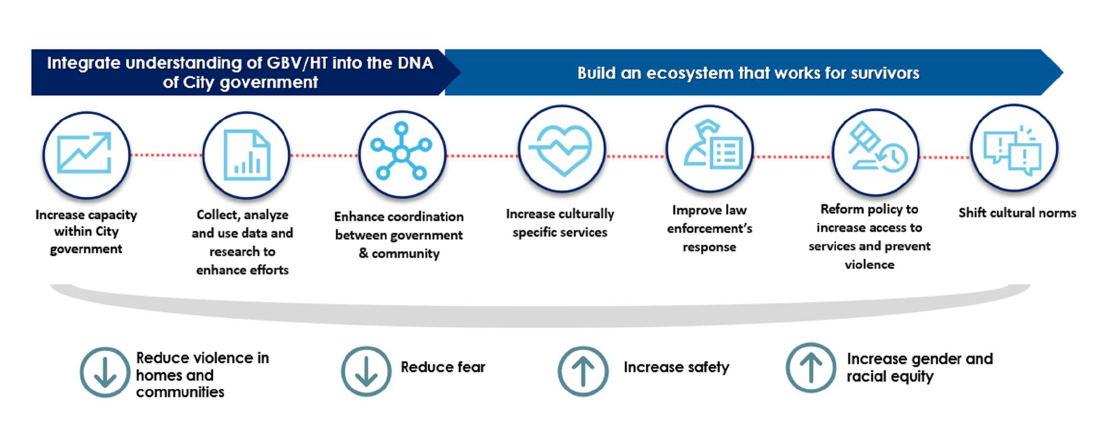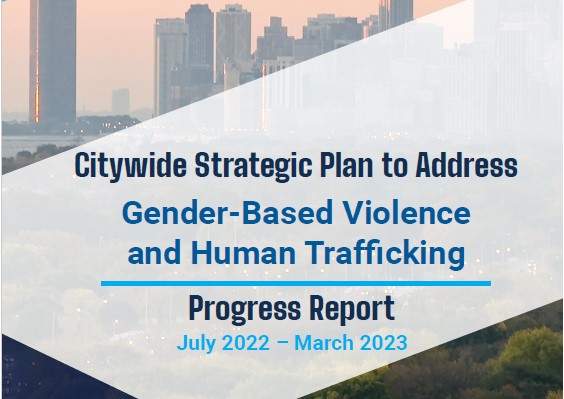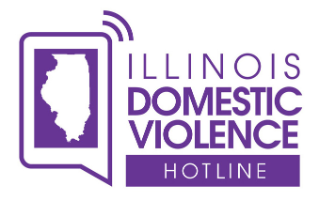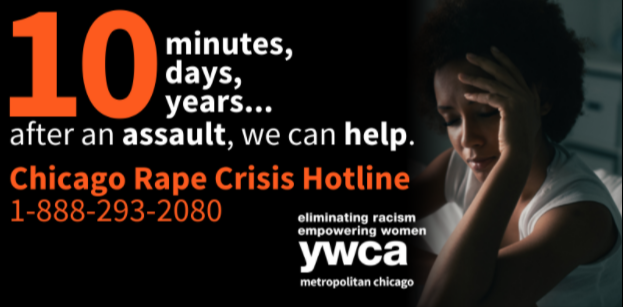Citywide Strategic Plan to Address Gender-based Violence and Human Trafficking
Press Statements
March 16, 2024 - Statement from Mayor Brandon Johnson on the Murder of Jayden Perkins and Support for Domestic Violence and Gender-Based Violence Survivors (English)
March 16, 2024 - Declaracion Del Alcalde Brandon Johnson Sobre El Asesinato De Jayden Perkins Y Apoyo A La Violencia Domestica Y Sobrevivientes De Violencia De Genero (Espanol)

The City of Chicago is building its first whole-of-government approach to address gender-based violence and human trafficking by first acknowledging the historical and systemic roots found at the intersection of racism and gender inequity; and second by building solutions-driven, trauma-informed strategies with community leaders, survivors, and City officials to create a safer, more equitable and inclusive Chicago. This strategic plan will take place over the next two years.
Gender-based violence (GBV) disproportionately impacts women of color, indigenous women, transgender individuals and LGBQIA+ individuals, immigrants, and people with disabilities. It is a human rights violation and a public health crisis. GBV is a form of discrimination and recognized as a manifestation of unequal power. GBV is bias-based harm caused by one’s bias against another person’s gender identity. Harmful acts can include:
-
Physical violence
-
Emotional abuse
-
Sexual violence
-
Sexual harassment
-
Discrimination based on gender
-
Sexual exploitation
-
Human trafficking
-
Workplace violence
-
Economic/financial abuse
-
Coercive manipulation
-
Harms related to immigration
-
Stalking and harassment, including via electronic communications
-
Reproductive coercion
-
Discrimination and/or targeted violence based on sexual orientation and/or gender identity
-
Institutional violence




OBJECTIVES |
KEY STRATEGIES |
| City employees are knowledgeable about gender-based violence and human trafficking and they have the capacity to operationalize the key strategies within this plan |
|
| Departments are equipped and skilled to respond to gender-based violence/human trafficking in a trauma-informed and responsible way |
|
OBJECTIVES |
KEY STRATEGIES |
| Inter and Intra-department/agency collaboration is improved and strengthened |
|
| City departments and sister agencies have strong partnerships with community-based organizations and leaders in the gender-based violence/human trafficking field(s) to better connect survivors and/or those who cause harm with services and supports. |
|
OBJECTIVES |
KEY STRATEGIES |
| Chicago Police Department’s policies and practices are best-in-class and rooted in best practices and trauma-informed care |
|
| CPD’s workforce reflects the demography of Chicago and ii utilized efficiently and effectively to ensure public safety and adequate response (as outlined in Objective 1). |
|
OBJECTIVES |
KEY STRATEGIES |
| City of Chicago and community partners understand the needs of survivors and map those needs to current services and supports to help identify gaps and barriers to access. |
|
| Survivors have access to a variety of trauma-informed, culturally appropriate services that ensure that individuals and families can connect to a strong safety net that promotes economic stability, safety, and well-being |
|
| Individuals who cause harm are held accountable through community-based interventions that seek to change behaviors, decrease violence and uphold accountability |
|
| Youth are centered in the design and implementation of services for survivors and families |
|
OBJECTIVES |
KEY STRATEGIES |
| The City of Chicago and partners understand—and make progress in addressing— the scope and prevalence of gender-based violence and human trafficking |
|
|
City of Chicago has a transparent mapping/landscape analysis of City services, supports and programs related to gender-based violence/human trafficking |
|
OBJECTIVES |
KEY STRATEGIES |
| The City of Chicago acknowledges the historical and systemic causes found in the intersectionality of racism and gender inequity |
|
| Prevention education is prioritized and institutionalized in settings where young people and/or caregivers are predominately served or seeking services. Education must not be a one-size fits all approach, should be culturally appropriate, and responsive to the needs of people with disabilities |
|
| Gender-based violence and human trafficking are widely discussed and understood, dismantling the stigma and myths related to these forms of pervasive violence |
|
OBJECTIVES |
KEY STRATEGIES |
| Policies that create barriers for survivors and their families to heal and seek safety are identified and revised |
|
| Chicago has the strongest worker protections and workers understand their rights and are empowered to continuously advocate for safe and just workplaces. |
|




Thank you to Apna Ghar for hosting a volunteer event in March!








 |
NEW! City of Chicago’s Progress Report (July 2022 - March 2023)for the Citywide Strategic Plan to Address Gender-based Violence and Human Trafficking.ARCHIVED REPORTSCity of Chicago’s Bi-annual Progress Report (September 2021 – June 2022)for the Citywide Strategic Plan to Address Gender-based Violence and Human Trafficking.Summary of Progress (September 2021 – June 2022) |




Creating a More Equitable Recovery: Addressing the Economic Barriers COVID-19 Exacerbated for Women in Chicago
The COVID-19 pandemic revealed pain points in our economy and safety net systems (or lack thereof). We can no longer look away, avoid nuanced discussions, or fail to acknowledge the deeply rooted racial and gender disparities that exist in the labor market.
Inspired by the advocacy of the Mayor's Women's Advisory Council, a collaborative team across the Mayor's Office, World Business Chicago, Women Employed, and Civic Consulting Alliance released a report detailing the impact of COVID-19 on women, and particularly women of color, in the workforce.




.png.thumb.319.319.png)
You can also call the National Human Trafficking Hotline at 1.888.373.7888 or text 233733. It is free and confidential. The Hotline is available 24 hours a day, 7 days a week and in over 100 languages.

If you or someone you know is experiencing domestic violence, you can call/text the IL Domestic Violence Hotline at 1-877-863-6338. It is free, confidential and available 24 hours a day, 7 days a week.

Call 888-293-2080 for Chicago Region
Operating 24 hours a day, 7 days a week, the Rape Crisis Hotline provide survivors of sexual violence and their significant others immediate support, crisis intervention and referrals for the city of Chicago and surrounding suburbs. The volunteers and staff at the hotline have received extensive training in sexual assault crisis intervention.
Text and Chat Services available: Monday-Friday, 9:00 am – 5:00 pm CST. To use the English chat, users must be 13 years or older. If under 13 years old, users will be directed to call or text the Rape Crisis Hotline at 888-293-2080. No cost to user, only standard messaging rates apply.




The GBV Task Force
Codified in the Municipal Code of Chicago, the GBV Task Force purpose is to build a whole-of-government approach to address the pervasiveness of genderbased
violence and human trafficking. The task force shall advise the Mayor on how to:
- increase capacity and expertise within City departments to address
gender-based violence and human trafficking; - enhance coordination of prevention and intervention efforts among City
departments and with key outside organizations focused on preventing gender-based
violence and human trafficking; - improve law enforcement response to gender-based violence;
- shift cultural norms on what constitutes gender-based violence and
human trafficking and its acceptability; - collect, analyze, and use data and research to enhance gender-based
violence and human trafficking intervention efforts; - create alternate responses to gender-based violence and human
trafficking outside of the criminal justice system; and - reform policies that perpetuate or create opportunities for gender-based
violence and human trafficking.
PUBLIC COMMENT
Any member of the general public may address orally, in person, or in writing; provided that oral public comment at meetings of the City Council shall be subject to the time limits set forth below. Any person who orally addresses the Taskforce shall:
- Email GBVTaskforce@cityofchicago.org a minimum of 48 hours prior to the scheduled meeting and include their name, organization or affiliation, ward, and phone number.
- limit their remarks to three minutes, and if the person intends to address more than one item, use that time, at the Chair’s direction, to address one, or several, such items;
- limit their remarks to the subject matter appearing on the agenda of the meeting;
- refrain from profane language, obscene conduct, or disruptive comments;
- comply with the order of the Chair of the meeting.
Any person who submits written comments shall do so a minimum of 24 hours in advance of the scheduled meeting.
The Chair of the meeting has authority and discretion to:
- curtail or limit public comment if the commenter fails to comply with this Rule, and
- allow reasonable variances from the three-minute time limit in appropriate, non-discriminatory, circumstances.
Public comment shall be limited to a total of 30 minutes.
Meeting Agendas + Notes (Most Recent to Oldest)
April 22, 1:00 - 2:30 pm
Location: City Hall, 121 N LaSalle St, Rm. 1103
March 13, 2024, 10:00 - 11:30 am
Location: City Hall, 121 N LaSalle St, Rm. 1103
February 14, 2024, 12:30 - 1:30 pm
Location: Chicago Cultural Center
December 14, 2023, 12:30 - 1:30 pm
Location: City Hall, 121 N LaSalle St, Rm. 1103
October 19, 2023, 12:00 - 1:30 pm
Location: City Hall, 121 N LaSalle St, Rm. 1103
August 17, 2023, 10:00 - 11:30 am
Location: City Hall, 121 N LaSalle St, Rm. 1103
June 16, 2023, 1:00-2:30 pm
Location: City Hall, 121 N LaSalle St, Rm. 1103




